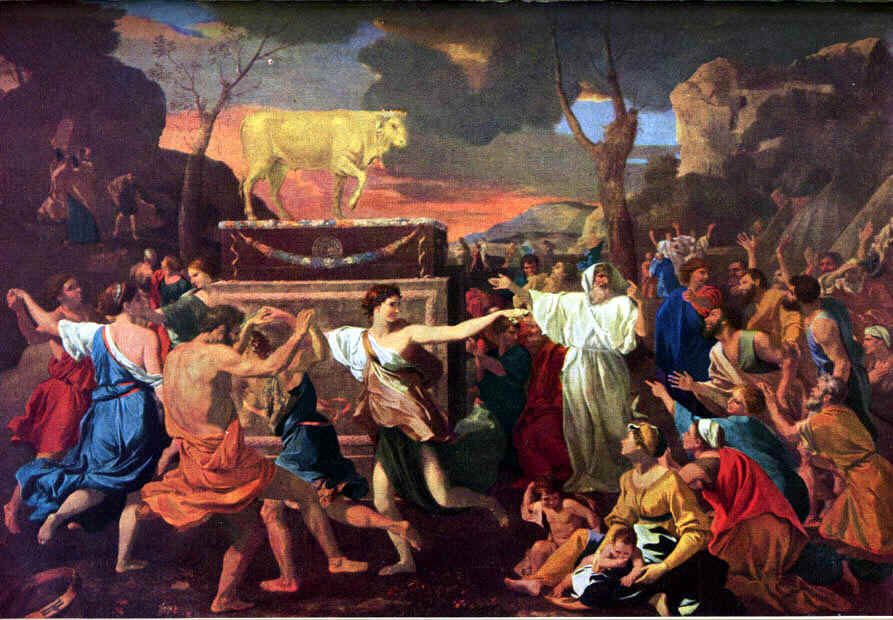Erev Rav on:
[Wikipedia]
[Google]
[Amazon]
 ''Erev Rav'' ( he, עֵרֶב רַב "mixed multitude") was a group that included Egyptians and others who had joined the
''Erev Rav'' ( he, עֵרֶב רַב "mixed multitude") was a group that included Egyptians and others who had joined the
 ''Erev Rav'' ( he, עֵרֶב רַב "mixed multitude") was a group that included Egyptians and others who had joined the
''Erev Rav'' ( he, עֵרֶב רַב "mixed multitude") was a group that included Egyptians and others who had joined the Tribes of Israel
The Twelve Tribes of Israel ( he, שִׁבְטֵי־יִשְׂרָאֵל, translit=Šīḇṭēy Yīsrāʾēl, lit=Tribes of Israel) are, according to Hebrew scriptures, the descendants of the biblical patriarch Jacob, also known as Israel, thro ...
on the Exodus
The Exodus (Hebrew: יציאת מצרים, ''Yeẓi’at Miẓrayim'': ) is the founding myth of the Israelites whose narrative is spread over four books of the Torah (or Pentateuch, corresponding to the first five books of the Bible), namely E ...
. According to Jewish tradition, they were accepted by Moses as an integral part of the people. Their influence is said to have been involved in the golden calf and other incidents where the people questioned Moses and his laws.
Etymology
According to contemporary Jewish Orthodox commentary ''Da'at Miqra
''Da’at Miqra'' () is a series of volumes of Hebrew-language biblical commentary published by the Jerusalem-based Mossad Harav Kook and constitutes a cornerstone of contemporary Israeli Orthodox bible scholarship. The project was headed by Ye ...
'', the words roughly correspond to the "mixed many", while Targum Onkelos
Interlinear text of Hebrew Numbers 6.3–10 with British_Library.html"_;"title="Aramaic_Targum_Onkelos_from_the_British_Library">Aramaic_Targum_Onkelos_from_the_British_Library.
Targum_Onkelos_(or_Onqelos;_Hebrew_language.html" "title="B ...
translates it as "many foreigners". The term appears in ''Exodus
Exodus or the Exodus may refer to:
Religion
* Book of Exodus, second book of the Hebrew Torah and the Christian Bible
* The Exodus, the biblical story of the migration of the ancient Israelites from Egypt into Canaan
Historical events
* Ex ...
'' 12:38: "A mixed crowd also went up with them, and livestock in great numbers, both flocks and herds". The "mixed crowd" is an English
English usually refers to:
* English language
* English people
English may also refer to:
Peoples, culture, and language
* ''English'', an adjective for something of, from, or related to England
** English national ide ...
rendering of ''Erev Rav''. While Exodus 12:38 is the only mention of the complete term ''Erev Rav'' in the entire Tanakh
The Hebrew Bible or Tanakh (;"Tanach"
'' evening Evening is the period of a day that starts at the end of the afternoon and overlaps with the beginning of night. The exact times when evening begins and ends depend on location, time of year, and culture, but it is generally regarded as beginn ...
in Hebrew), also appears in '''' evening Evening is the period of a day that starts at the end of the afternoon and overlaps with the beginning of night. The exact times when evening begins and ends depend on location, time of year, and culture, but it is generally regarded as beginn ...
Nehemiah
Nehemiah is the central figure of the Book of Nehemiah, which describes his work in rebuilding Jerusalem during the Second Temple period. He was governor of Persian Judea under Artaxerxes I of Persia (465–424 BC). The name is pronounced o ...
'' 13:3, where it is used to refer to non-Jews.Bar, Shaul. "Who Were The Mixed Multitudes?" ''Hebrew Studies,'' vol. 49, 2008, pp. 27–39., (www.jstor.org/stable/27913875). Biblical scholar Shaul Bar has suggested that the term may have referred specifically to foreign mercenaries who intermarried with the Israelite
The Israelites (; , , ) were a group of Semitic-speaking tribes in the ancient Near East who, during the Iron Age, inhabited a part of Canaan.
The earliest recorded evidence of a people by the name of Israel appears in the Merneptah Stele o ...
people in Egypt. Israel Knohl suggested that the word ''erev'' may be cognate to the Akkadian ''urbi'', referring to a kind of soldier.
Jewish tradition
According toIsaac Luria
Isaac ben Solomon Luria Ashkenazi (1534 Fine 2003, p24/ref> – July 25, 1572) ( he, יִצְחָק בן שלמה לוּרְיָא אשכנזי ''Yitzhak Ben Sh'lomo Lurya Ashkenazi''), commonly known in Jewish religious circles as "Ha'ARI" (mea ...
, in every generation, the souls of the ''Erev Rav'' are reincarnated in numerous individuals. The '' Zohar'', which is the foundational text for Kabbalistic thought, says the ''Erev Rav'' not only exist in every generation, but they are the cause for most of the problems affecting the Jewish people. Currently, the term ''Erev Rav'' is used by Jews in a derogatory manner to describe someone who is perceived as a traitor.
See also
* Am ha'aretzReferences
{{reflist Ancient Jewish Egyptian history Hebrew words and phrases in the Hebrew Bible